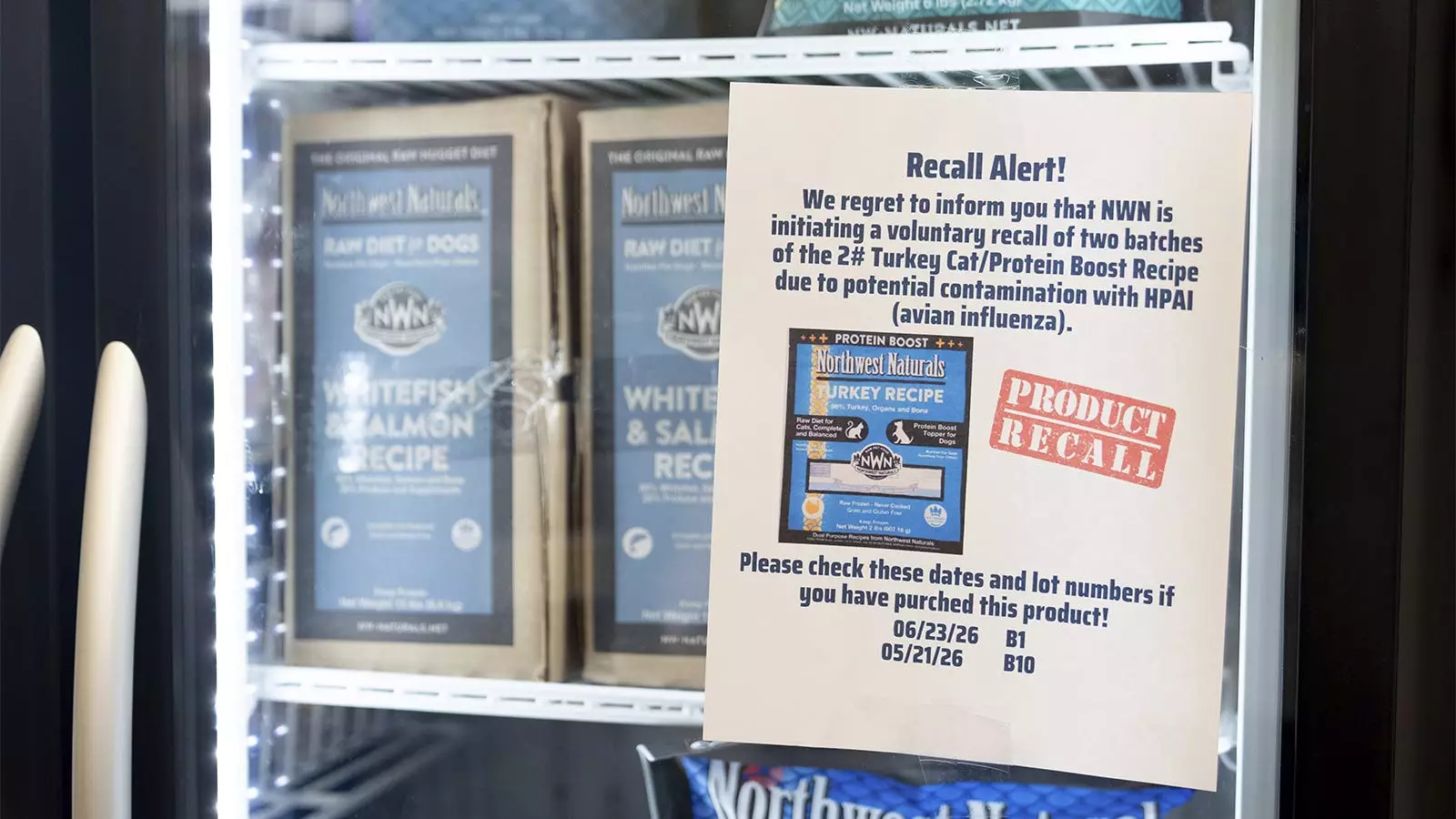The recent demise of a house cat in Oregon has sparked widespread concern about the presence of avian influenza in domestic animals. This incident, coupled with a recall of pet food, emphasizes a growing crisis that has been simmering for years. Bird flu, primarily affecting wild birds, has found its way into various species, including poultry and, recently, dairy cattle in the United States. The repercussions of this virus highlight the potential dangers lurking in the environment and the critical role of pet owners in safeguarding their furry companions.
Although instances of bird flu transmission to humans are infrequent, they predominantly occur among individuals who work closely with infected livestock, such as those in dairy or poultry farms. When an outbreak is confirmed on a farm, drastic measures are taken, often resulting in the culling of avian livestock to prevent further spread. This grim strategy underscores the seriousness of the ongoing outbreak.
Investigating the Cat’s Illness
In the Oregon case, health officials successfully traced the infection back to a specific batch of frozen cat food containing raw turkey. Alarmingly, the virus strain found in the affected food was identical to that found in the cat, prompting questions about the risks associated with feeding pets raw diets. Veterinarian Michael Q. Bailey, serving as president-elect of the American Veterinary Medical Association, noted that while raw diets are increasingly popular among pet owners, they can pose significant health threats, as the bird flu virus can survive in raw meat products.
The discussion around case studies involving domestic pets, particularly cats, reveals a troubling trend. Cats appear particularly vulnerable to the H5N1 strain of the bird flu. Even prior to the reported outbreak in cattle, there were documented incidents of feline infections stemming from wild avian interactions. The surge of cases since March, involving various environments such as indoors, barns, and zoos, illustrates a pandemic-like ripple effect stemming from animal to animal.
Recognizing these dangers, it’s crucial for cat owners to remain vigilant. Cats should not be allowed to consume unpasteurized dairy or raw meat. To mitigate possible exposure to the virus, it is recommended that pet owners keep their cats indoors and away from wild birds and poultry. Bailey underscores the importance of leash-walking and monitoring outdoor activities, given a cat’s instinct to hunt, particularly birds, which could expose them to the virus.
Additionally, pet owners are advised to refrain from touching sick or deceased birds and to practice optimum hygiene after handling any poultry. Simple steps like thoroughly washing hands after coming into contact with potentially infected animals can significantly reduce the risk of virus transmission.
Signs of Bird Flu in Pets
Understanding symptoms associated with bird flu is vital for early detection in pets. Common indications of illness in cats include loss of appetite, lethargy, and the presence of fever. A noticeable change in behavior, such as increased sleepiness or withdrawal from usual activities, should prompt immediate concern. Physical symptoms may include redness or discharge from the eyes and nose, as well as breathing difficulties, tremors, or seizures. If any of these signs appear, prompt consultation with a veterinary professional is essential.
Adding to the urgency of the situation, Northwest Naturals, a Portland-based pet food manufacturer, initiated a voluntary recall of a specific batch of its Feline Turkey Recipe raw frozen pet food after testing positive for the bird flu virus. The recalled items were distributed across several states and even Canada. Consumers with these products are urged to dispose of them immediately and contact retailers for refunds.
This incident not only emphasizes the importance of vigilance in pet food safety but also reflects the evolving understanding of how avian influenza can impact domestic animals. With ongoing surveillance and responsible pet care practices, owners can better protect their beloved pets from this emerging threat.
While bird flu remains a serious concern primarily for avian populations, increasing evidence suggests that it poses direct risks to domesticated pets. As pet owners, maintaining awareness and taking proactive measures is vital for the safety and health of our animal companions.

Leave a Reply